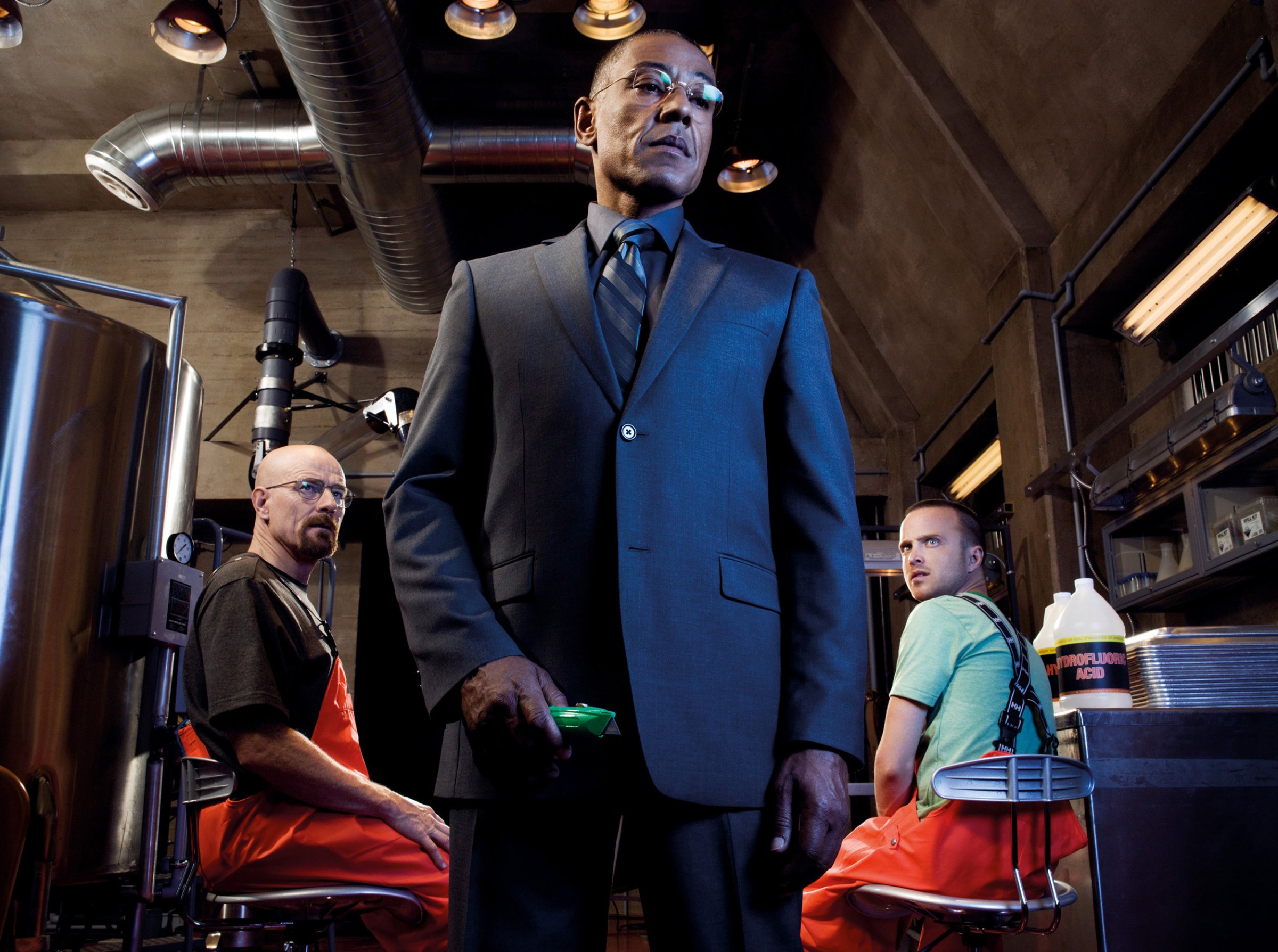
Breaking Bad fans online, who’ve had relatively little nourishment since their favorite show finished its run in 2013, have had a great deal to fixate on over the last few days thanks to a quirk in spinoff Better Call Saul‘s episode titling. A widely-circulated theory has it that the first letters of each of the ongoing Saul season’s episodes, when rearranged, spell “FRING’S BACK.” It’s fun to chew on. But if Gus Fring, a fan-favorite character from Breaking Bad and one of TV’s most charismatic villains, comes to Saul on Monday night, it’d be a misstep.
Better Call Saul, a prequel series that depicts the early career of the man who will eventually become Breaking Bad‘s amoral attorney, hasn’t been shy about integrating characters from the Breaking Bad universe. Indeed, the backstory of Mike Ehrmantraut has made up a substantial proportion of the show’s plot, and has drawn beloved Breaking Bad characters like Tuco and Hector Salamanca in, too.
But Mike’s sad tale—one that encompasses institutional corruption and personal tragedy—is a shade the show’s creators are able to apply sparingly. When he’s onscreen, it’s so riveting as to become the episode’s focal point, but his story is morally complex enough to defy easy categorization, just like the rest of Saul‘s plotlines. Breaking Bad had a relatively simplistic moral universe, one in which the shift from good to evil happened irrevocably. Mike is somewhere between the two. Gus Fring is a fan-favorite character, sure, but he’s beloved in large part because he’s a comic-book supervillain by comparison.
This season has dealt with injustices large and small. Mike’s attempt to righteously one-up the Salamancas blew up in his face before he got a canny sort of revenge thanks to a spiked garden hose. While I trust the writers’ ability to pull off just about any character’s surprise appearance, I’m more interested in seeing the human-scale endgame of a petty dispute between small-time operators than in seeing an almost omnipotent druglord come into the scene.
And that’s discounting the fact that the best stuff on Saul‘s second season has had nothing to do with the Breaking Bad universe. Playing Kim Wexler, a new character, Rhea Seehorn has delivered the sort of star-making performance Sarah Paulson gave on The People v. O.J. Simpson. Both Seehorn and Paulson play lawyers subject to endless slight derisions and deflating requests from their male colleagues; Seehorn brings to her particular performance a sense of before-her-time world-weariness. After every single exciting development in her career has turned out to have a negative edge (many of them accountable to her entanglement with the future Saul Goodman), she’s undergoing an evolution of her own. She’s not going from good to evil; she’s going from optimistic about the world’s possibilities to resigned about its futility, giving in to low-level graft and condoning outright fraud. That Kim’s story doesn’t have operatic scope doesn’t make it less interesting, but to put it in the same series as a drop-in from the starkest corner of the universe would dull its impact somewhat.
Better Call Saul is, in general, suffused with interesting and odd narrative possibility. If Breaking Bad moved relentlessly forward towards its only possible conclusion, Saul does little loops and hits minor-key emotional registers that not every viewer might be equipped to hear. It’s often referred to as boring, but I find its slow excavation of just what Kim and Mike, in particular, are willing to bear to be incredibly interesting stuff. The tension’s been amping up slowly all season; not only is there no need to juke it with an adrenaline shot, that would feel unnatural in the extreme.
There may be hope for Better Call Saul purists, those who think the show’s tone should be allowed to exist and bloom in its own odd way. Show creator Vince Gilligan seemed to imply in a panel interview that introducing Gus in the season 2 finale was considered but scrapped. Here’s hoping it isn’t just being saved for season 3. I’m more interested in going towards Kim’s limit, and seeing what comes after it, than in seeing more of a character whose limitlessness we already know well.
More Must-Reads from TIME
- Why Trump’s Message Worked on Latino Men
- What Trump’s Win Could Mean for Housing
- The 100 Must-Read Books of 2024
- Sleep Doctors Share the 1 Tip That’s Changed Their Lives
- Column: Let’s Bring Back Romance
- What It’s Like to Have Long COVID As a Kid
- FX’s Say Nothing Is the Must-Watch Political Thriller of 2024
- Merle Bombardieri Is Helping People Make the Baby Decision
Contact us at letters@time.com